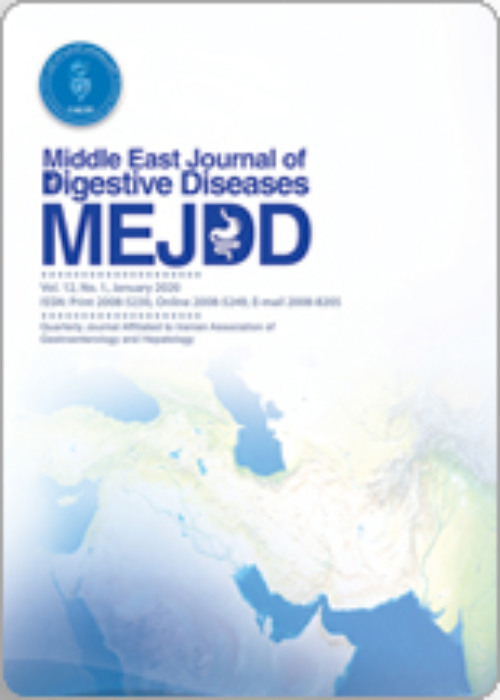Burden of Gastrointestinal and Liver Diseases in Middle East and North Africa: Results of Global Burden of Diseases Study from 1990 to 2010
Author(s):
Abstract:
Background
Gastrointestinal and liver diseases (GILDs) are major causes of death and disability in Middle East and North Africa (MENA). However, they have different patterns in countries with various geographical, cultural, and socio-economic status. We aimed to compare the burden of GILDs in Iran with its neighboring countries using the results of the Global Burden of Disease (GBD) Study in 2010. Methods
Classic metrics of GBD have been used including: age-standardized rates (ASRs) of death, years of life lost due to premature death (YLL), years of life lost due to disability (YLD), and disability adjusted life years (DALY). All countries neighboring Iran have been selected. In addition, all other countries classified in the MENA region were included. Five major groups of gastrointestinal and hepatic diseases were studied including: infections of gastrointestinal tract, gastrointestinal and pancreatobilliary cancers, acute hepatitis, cirrhosis, and other digestive diseases.Results
The overall burden of GILDs is highest in Afghanistan, Pakistan, and Egypt. Diarrheal diseases have been replaced by gastrointestinal cancers and cirrhosis in most countries in the region. However, in a number of countries including Afghanistan, Pakistan, Turkmenistan, Egypt, and Yemen, communicable GILDs are still among top causes of mortality and morbidity in addition to non-communicable GILDs and cancers. These countries are experiencing the double burden. In Iran, burden caused by cancers of stomach and esophagus are considerably higher than other countries. There is an overall overestimation of liver cancer and underestimation of other gastrointestinal and pancreatobilliary cancers. The diseases that are mainly diagnosed in outpatient settings have not been captured by GBD.Conclusion
Improving the infrastructure of health care system including cancer registries and electronic recoding of outpatient care is a necessity for better surveillance of GILDs in MENA. In contrast to expensive treatment, prevention of most GILDs is feasible and inexpensive. The health care systems in the region can be strengthened for prevention and control.Keywords:
Language:
English
Published:
Middle East Journal of Digestive Diseases, Volume:7 Issue: 4, Oct 2015
Pages:
201 to 213
magiran.com/p1453872
دانلود و مطالعه متن این مقاله با یکی از روشهای زیر امکان پذیر است:
اشتراک شخصی
با عضویت و پرداخت آنلاین حق اشتراک یکساله به مبلغ 1,390,000ريال میتوانید 70 عنوان مطلب دانلود کنید!
اشتراک سازمانی
به کتابخانه دانشگاه یا محل کار خود پیشنهاد کنید تا اشتراک سازمانی این پایگاه را برای دسترسی نامحدود همه کاربران به متن مطالب تهیه نمایند!
توجه!
- حق عضویت دریافتی صرف حمایت از نشریات عضو و نگهداری، تکمیل و توسعه مگیران میشود.
- پرداخت حق اشتراک و دانلود مقالات اجازه بازنشر آن در سایر رسانههای چاپی و دیجیتال را به کاربر نمیدهد.
In order to view content subscription is required
Personal subscription
Subscribe magiran.com for 70 € euros via PayPal and download 70 articles during a year.
Organization subscription
Please contact us to subscribe your university or library for unlimited access!


